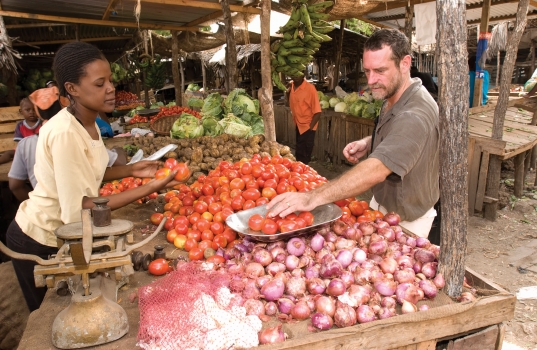Trademark East Africa (TMEA) have launched a USD 4.5 million women trade programme. Funded by the Kingdom of Netherlands, it targets 25,000 women traders in Uganda, Kenya, Rwanda, Burundi, Tanzania and South Sudan and will run for approximately one year. A second five year phase is envisaged for 2017 with a USD 15 million budget.
The Women and Trade (WaT) programme seeks to increase incomes and improve livelihoods for women traders and women-owned enterprises through capacity building, addressing trade barriers and advocacy for policies that will create an enabling environment for them to thrive.
According to a World Bank report “Engendering Development” women reinvest up to 90% of their income in education, health, and nutrition of their family and community compared to 30 – 40% for men. A report done by the Food and Agriculture Organization further states that if women had the same access to productive resources, they could produce 20 to 30% more food significantly increasing product yield and translating to up to 150 million fewer hungry people.
In Rwanda, TMEA supports Profemmes to mobilise women to form and register cooperatives through which they can collectively market their produce. For Rwanda WaT has demonstrated that with increase in revenue, women are now able to afford medical insurance and education costs for their children. In South Sudan, TMEA will partner with local NGO’s who are training and empowering women trading in shea butter and honey. In Uganda’s case TMEA partners with Uganda Women Entrepreneurs Association (UWEAL) who train women in business and increase their influence in National and regional trade.
In partnership with local organizations that will implement the project, TMEA seeks to significantly contribute to women traders increased knowledge on EAC trade and export procedures by December 2016. They target for a 10% average increase in the revenues of the targeted women exporters and traders, 30% increase in the use of formal trade channels/systems by the targeted women cross border traders and the adoption of policies, regulations or practices that support an enabling environment for women.


